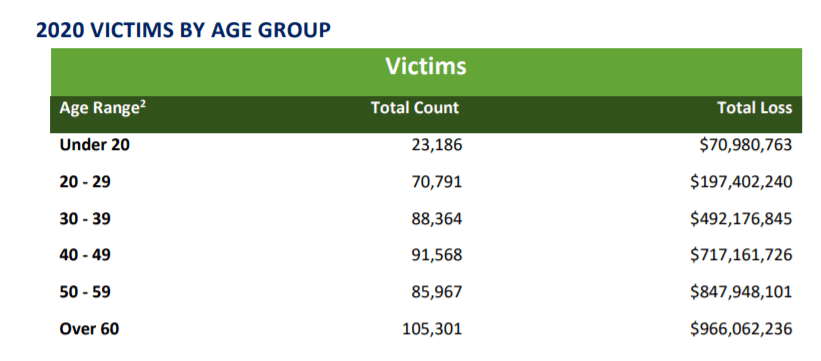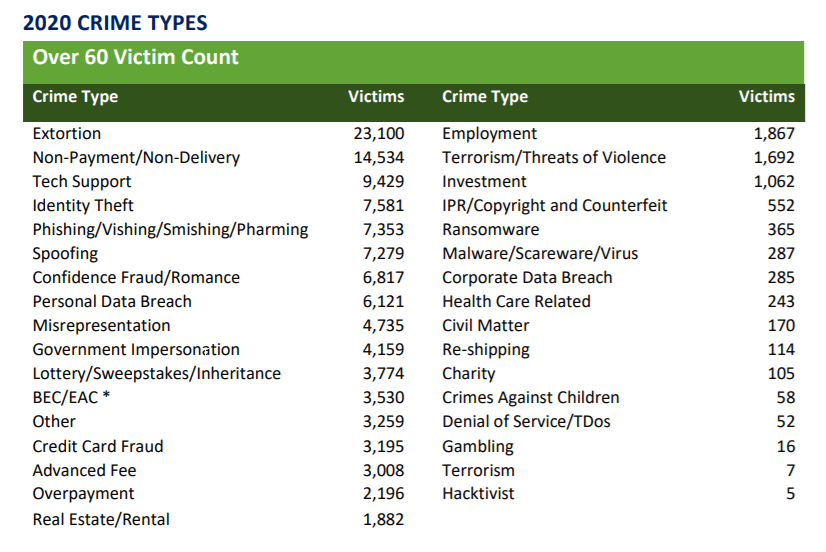Every day people fall victim to some type of financial fraud or internet scheme. Cybercriminals gain users’ trust and develop their tactics of intimidation and threats. If the scheme is successful, it is likely to keep going promising significant financial gain. That is why the list of cybercrimes is getting longer every year: government impersonation, identity thefts, confidence fraud, extortion, phishing, lottery or sweepstake scams, and many more.
According to the FBI’s Internet Crime Complaint Center (IC3) report, the elderly become victims more often than others. In 2020 IC3 received a total of 791,790 complaints with reported losses exceeding $4.1 billion. According to the information provided in these complaints, 28% of the total fraud losses were sustained by victims over the age of 60, resulting in over $1 billion in losses to seniors. There is an increase of $300 million in losses comparing to 2019. The report’s figures also show that the total losses of people who are over-60s are the greatest. And one of the main reasons for this is the global pandemic situation.

The report states that many elderly people found themselves shopping online in 2020 for the first time due to COVID-19 lockdown restrictions.
“Elderly victims filed over 14,000 non-payment/non-delivery complaints experiencing losses over $40 million in 2020, making non-delivery of products the second most reported fraud among the elderly. ”
Also, users over 60 started using social networks to stay connected with friends and relatives that they could not meet in person. So they became perfect victims for online scammers posting fake adverts and promoting counterfeit products.
The fear of Coronavirus explains the dramatic increase in extortion. Most complaints received in 2020 were part of an email extortion campaign in which victims received an email threatening to inform all recipients’ contacts that they were infected with COVID or to infect the recipients with COVID unless a payment was made.

It is the perfect time to protect your elderly loved ones from scam artists of all kinds. Make sure they are not the next victim. Offer sensible advice to your aging relatives and remember to discuss the issue in-depth.
